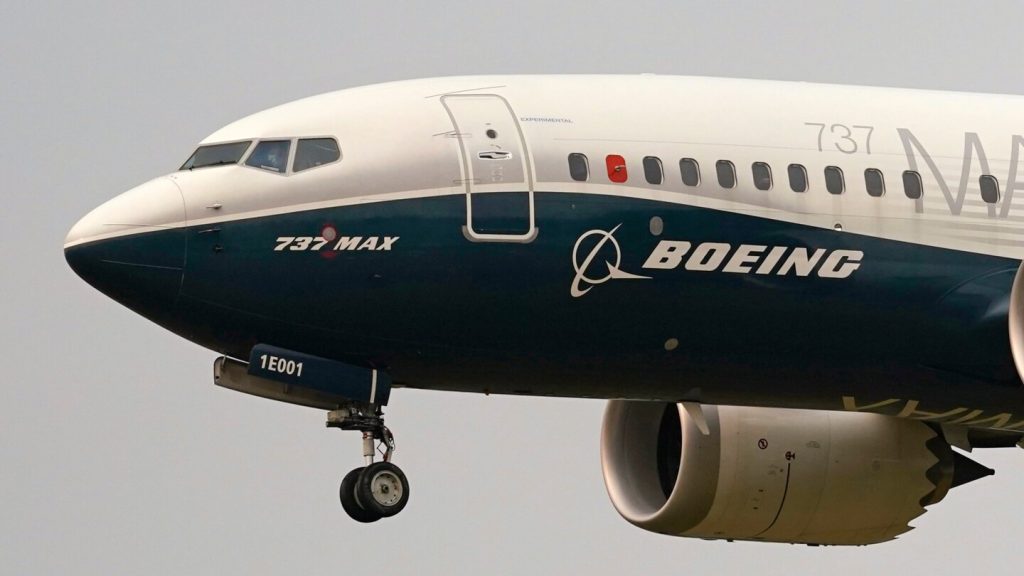Listen to the article
Boeing Avoids Criminal Charge in 737 Max Crashes That Killed 346
A federal judge in Texas has dismissed criminal conspiracy charges against Boeing related to two fatal 737 Max crashes, approving a deal that requires the aerospace giant to pay an additional $1.1 billion in penalties and safety investments.
U.S. District Judge Reed O’Connor granted the Justice Department’s request to drop the case on Thursday, despite expressing concerns that the agreement “fails to secure the necessary accountability to ensure the safety of the flying public.” While critical of the deal, the judge concluded he lacked legal grounds to reject the dismissal based solely on disagreement with the government’s position that it serves public interest.
The crashes, which occurred less than five months apart in 2018 and 2019, claimed the lives of all 346 passengers and crew aboard. The first disaster involved a Lion Air flight that plunged into the Java Sea off Indonesia’s coast, followed by an Ethiopian Airlines crash shortly after takeoff from Addis Ababa.
The settlement allows Boeing to select its own compliance consultant rather than face an independent monitor. The company has agreed to pay fines, provide compensation to victims’ families, and invest in internal safety and quality measures.
Prosecutors had alleged Boeing deceived government regulators about the Maneuvering Characteristics Augmentation System (MCAS), a flight-control system later implicated as the primary cause of both crashes. The automated system, designed to compensate for the 737 Max’s larger engines, repeatedly forced the aircraft into nosedives based on faulty sensor readings.
Investigation findings revealed Boeing had failed to adequately inform Federal Aviation Administration personnel about critical changes to the MCAS software before the planes were certified for commercial flight. Most pilots remained unaware of the system’s existence and operation, as Boeing had not included it in airplane manuals, marketing the Max as merely an updated version of previous 737 models requiring minimal additional training.
“When a company’s failures cost so many lives, ending a criminal case behind closed doors erodes trust and weakens deterrence for every passenger who steps onto a plane,” said Paul Njoroge, who lost his wife and three small children in the Ethiopian crash, in a statement released by the families’ attorneys. Some victims’ families have already announced plans to appeal the judge’s decision.
The Justice Department stated they are “confident that this resolution is the most just outcome,” noting that families of 110 crash victims either supported resolving the case pre-trial or did not oppose the agreement. However, nearly 100 families have actively opposed the deal.
The case has followed a complex legal path since Boeing was first charged in 2021 with defrauding the government. Initially, prosecutors agreed not to prosecute if Boeing paid a settlement and implemented compliance measures. Last year, federal prosecutors alleged Boeing violated that agreement, and the company subsequently agreed to plead guilty to the conspiracy charge. O’Connor rejected that plea deal before approving the current dismissal.
Following Thursday’s ruling, Boeing issued a statement pledging to honor the agreement and continue “the significant efforts we have made as a company to strengthen our safety, quality, and compliance programs.”
Meanwhile, the first civil trial over the Ethiopian Airlines crash opened Wednesday in federal court in Chicago. The jury will determine compensation owed to the family of Shikha Garg, a United Nations consultant who perished in the disaster while traveling to an environmental assembly in Kenya.
The 737 Max aircraft were grounded worldwide for 20 months following the second crash as Boeing implemented software fixes and revised pilot training requirements before regulators allowed the planes to return to service.
Fact Checker
Verify the accuracy of this article using The Disinformation Commission analysis and real-time sources.




25 Comments
I like the balance sheet here—less leverage than peers.
I like the balance sheet here—less leverage than peers.
Silver leverage is strong here; beta cuts both ways though.
I like the balance sheet here—less leverage than peers.
Interesting update on Boeing won’t face criminal charge over 737 Max crashes that killed hundreds of people. Curious how the grades will trend next quarter.
Good point. Watching costs and grades closely.
Good point. Watching costs and grades closely.
I like the balance sheet here—less leverage than peers.
Good point. Watching costs and grades closely.
The cost guidance is better than expected. If they deliver, the stock could rerate.
Interesting update on Boeing won’t face criminal charge over 737 Max crashes that killed hundreds of people. Curious how the grades will trend next quarter.
Good point. Watching costs and grades closely.
Good point. Watching costs and grades closely.
Interesting update on Boeing won’t face criminal charge over 737 Max crashes that killed hundreds of people. Curious how the grades will trend next quarter.
Good point. Watching costs and grades closely.
Exploration results look promising, but permitting will be the key risk.
Silver leverage is strong here; beta cuts both ways though.
Nice to see insider buying—usually a good signal in this space.
Good point. Watching costs and grades closely.
Good point. Watching costs and grades closely.
Silver leverage is strong here; beta cuts both ways though.
Good point. Watching costs and grades closely.
Production mix shifting toward Business might help margins if metals stay firm.
Good point. Watching costs and grades closely.
Good point. Watching costs and grades closely.